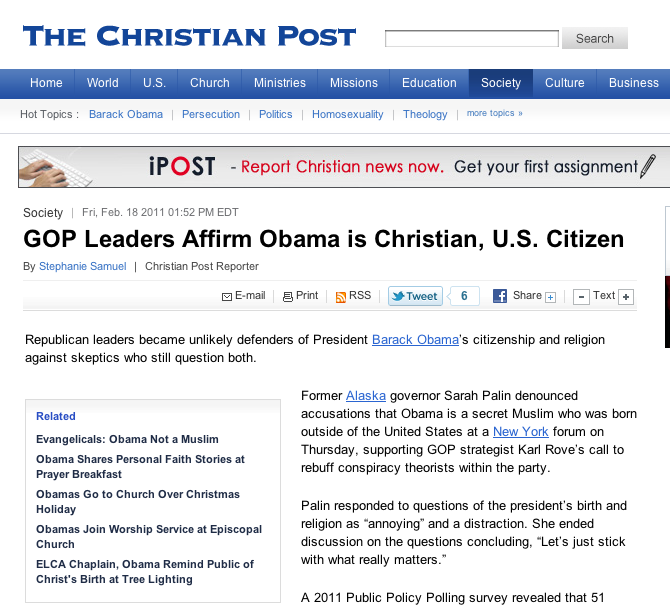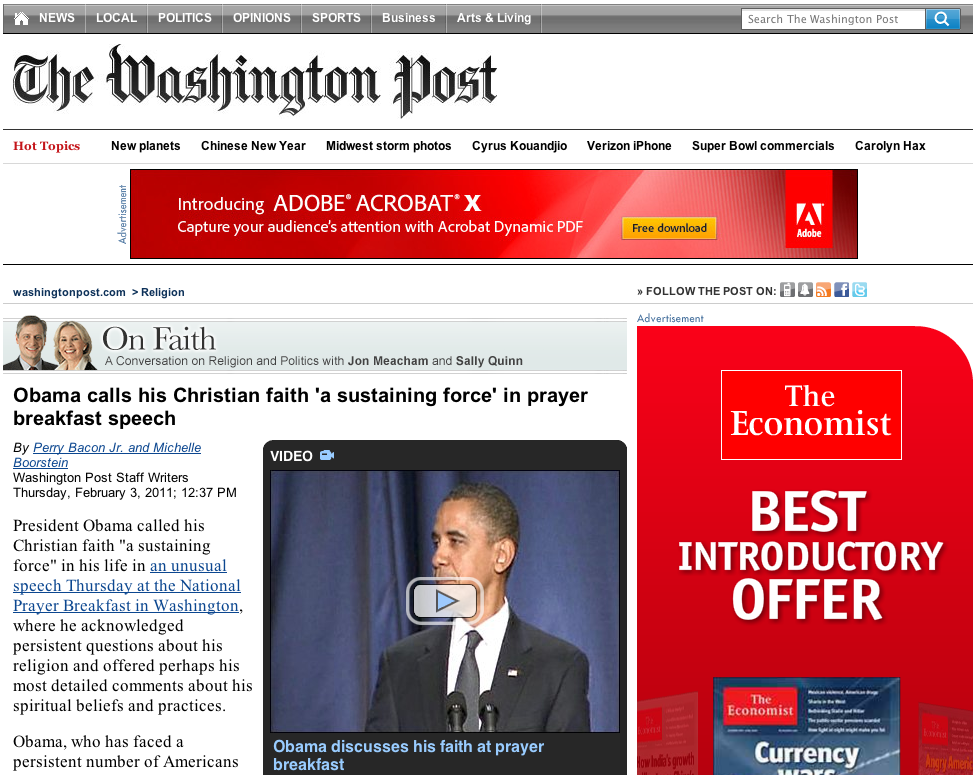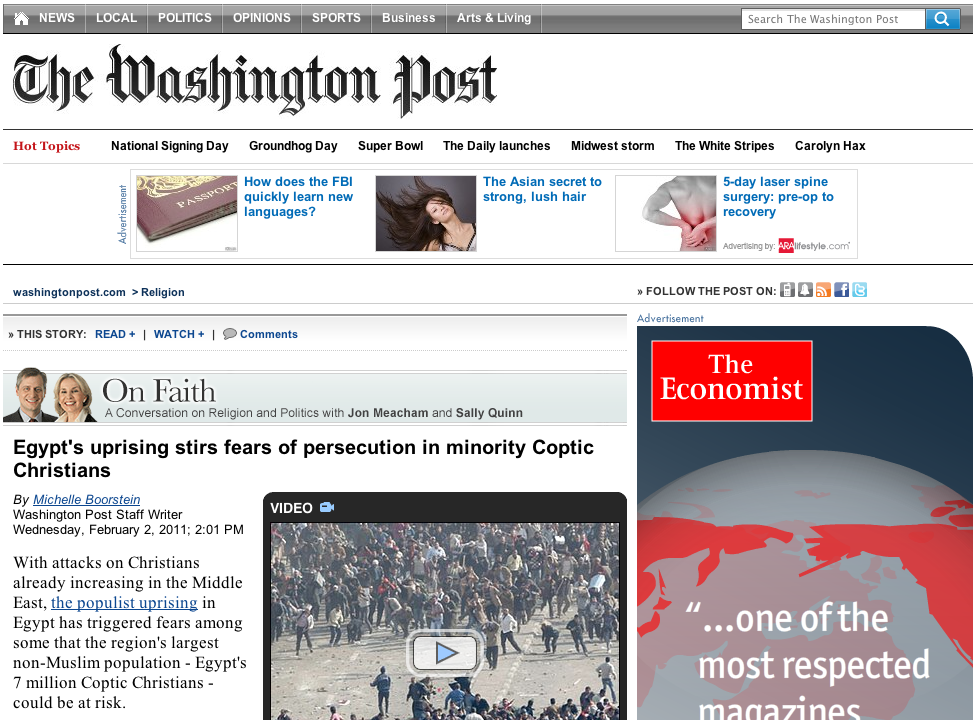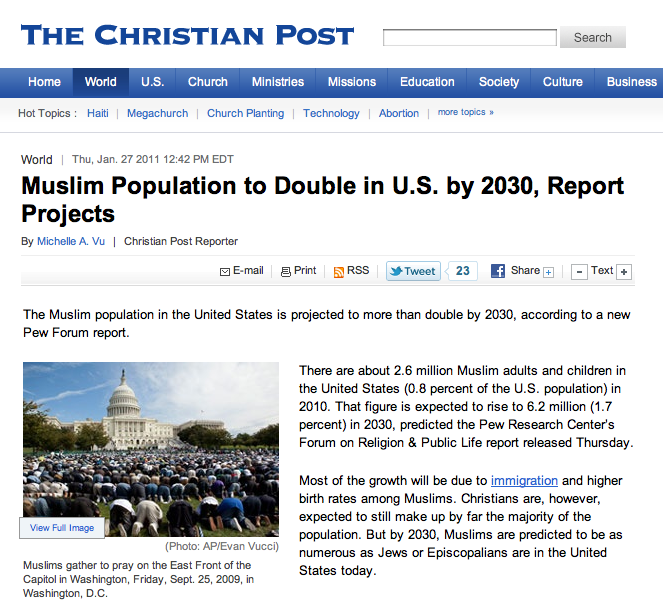Joel C. Hunter Named to Commission on Accountability and Policy for Religious Organizations
 WINCHESTER, Va. – Fifteen members have been named to the Commission on Accountability and Policy for Religious Organizations, ECFA (Evangelical Council for Financial Accountability) has announced.
WINCHESTER, Va. – Fifteen members have been named to the Commission on Accountability and Policy for Religious Organizations, ECFA (Evangelical Council for Financial Accountability) has announced.
This commission was formed following a staff report issued in January by U.S. Sen. Charles Grassley that focused on the financial practices of high-profile religious organizations. After releasing the findings of his three-year inquiry of six media-based Christian ministries, the senator asked ECFA to spearhead an independent national effort to review and provide input on major accountability and policy issues affecting such organizations.
“These 14 individuals are proven and highly respected leaders with great wisdom and insight,” said Michael Batts, the commission’s chair. “It is our hope and prayer that the tremendous leadership experience they bring will allow us to develop recommendations that are good for the religious sector and good for our country. Robust and meaningful input from a variety of faith groups and others in the nonprofit sector will be critically important in achieving that result.”
Batts, a CPA, is the managing shareholder of Batts, Morrison, Wales & Lee of Orlando, Fla. He is a member of the ECFA board, former board chair and current chair of ECFA’s Standards Committee.
Other commission members are as follows:
Dan Busby, president of ECFA, is a noted author and speaker on church and nonprofit issues.
Rev. Luis Cortes, founder of Esperanza, Philadelphia, Pa., one of the largest Hispanic evangelical networks in the nation. Esperanza has provided technical assistance and training to over 450 Hispanic nonprofits. Cortes is a national leader of Hispanic concerns and community development.
Rev. Mark Davis, chief financial officer of Calvary Chapel, Ft. Lauderdale, Fla., one of the 10 largest churches in America. The church has grown to more than 25,000 people worshiping at the main campus in Ft. Lauderdale and satellite locations in Boca Raton, Plantation, Hollywood and the Keys.
Dr. Stephen Douglass, president, Campus Crusade for Christ, Orlando, Fla. Crusade is an evangelism ministry with a presence in 191 countries founded in 1951 by Bill and Vonette Bright on the UCLA campus.
Richard Hammar, attorney and CPA, general counsel for the Assemblies of God, Springfield, Mo., recognized among top church attorneys in the U.S. and is a noted speaker and author.
Mark Holbrook, president and CEO of Evangelical Christian Credit Union (ECCU), Brea, Calif. ECCU serves ministry members across the country from its headquarters and regional office in Colorado Springs, Colo.
Dr. Joel Hunter, senior pastor of Northland, A Church Distributed, Longwood, Fla. Northland is an interdenominational congregation of 12,000 that worships at several physical sites throughout Central Florida and hundreds of virtual sites worldwide via the Internet.
Lauren Libby, president, TWR, Cary, N.C. TWR is the world’s most far-reaching Christian radio network, with broadcasts reaching millions in over 160 countries each day.
Dr. Jo Anne Lyon, general superintendent in The Wesleyan Church, Indianapolis, Ind. She previously was the founder and CEO of World Hope International, Alexandria, Va.
Dr. Mark Rutland, president, Oral Roberts University (ORU), Tulsa, Okla. The third president of ORU, he is a distinguished educator, leader, business man and a nationally recognized figure in Christian higher education.
Rev. William Townes Jr., CPA, vice president of the Southern Baptist Convention’s (SBC) convention finance executive committee. The SBC executive committee is comprised of representatives chosen from states and regions, and acts on behalf of the SBC between sessions.
Bishop Kenneth Ulmer, senior pastor-teacher of Faithful Central Bible Church, Inglewood, Calif. Faithful Central is a congregation of 13,000 that worships at the Great Western Forum. Ulmer is a nationally recognized speaker and author.
Dr. Dolphus Weary, president of the Rural Education and Leadership (R.E.A.L.) Christian Foundation, Jackson, Miss. A noted author and speaker, the foundation he leads supports rural Christian ministries in Mississippi with technical assistance and capacity-building.
David Wills, president, National Christian Foundation (NCF), Alpharetta, Ga. NCF has helped thousands of givers send more than $2 billion to over 18,000 charities.
Commission work began with a teleconference on April 11. Its first meeting, May 19, will be followed by quarterly meetings for up to three years.
Issues the commission will address include whether churches should file the same highly detailed annual information return that other nonprofits must file (Form 990); whether legislation is needed to curb abuses of the clergy housing allowance exclusion; whether the current prohibition against political campaign intervention by churches and other nonprofits should be repealed or modified; and whether legislation is needed to clarify tax rules covering “love offerings” received by some clergy.
The commission’s members, ECFA staff and retained legal counsel will receive input from Grassley’s staff; the IRS and Treasury Department; panels of legal experts; religious and nonprofit sector representatives; position papers; and an ECFA member survey. The commission, in turn, will give periodic updates to Grassley, the ECFA board and the public.
The panel of religious sector representatives will include individuals who represent various religious faiths, including, but not necessarily limited to, Protestant Christianity, Roman Catholicism, Judaism and Islam. Special emphasis will be placed on engaging leaders who represent large segments of their respective faith groups.
ECFA, founded in 1979, provides accreditation to over 1,500 leading Christian nonprofit organizations with budgets in excess of $15 billion that faithfully demonstrate compliance with the ECFA standards pertaining to financial accountability, fundraising and board governance. For more information about ECFA, including information about accreditation and a listing of ECFA-accredited members, visit www.ecfa.org or call 1-800-323-9473.
###
To schedule an interview with Michael Batts or Dan Busby, please contact Ty Mays at 770-256-8710 or tmays@inchristcommunications.com.





